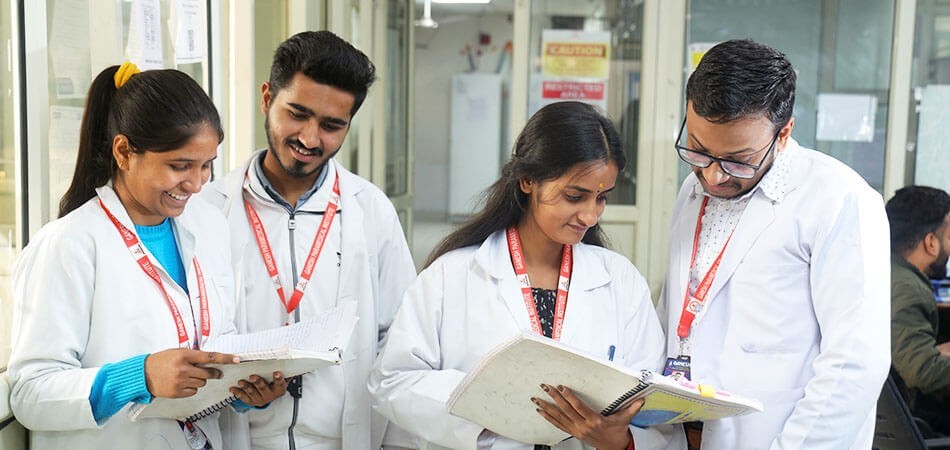The first time I really grasped how biotechnology was transforming health education, it felt like a window opened to a whole new world. Suddenly, the way we understand diseases, treatments, and even the human body itself was evolving at a breakneck pace. Biotechnology isn’t just a buzzword anymore—it’s reshaping curricula, teaching methods, and what it means to be health literate in the 21st century. Let me walk you through how biotechnology knowledge is redefining health education, why it matters, and what this means for students, educators, and healthcare professionals alike.
What Is Biotechnology and Why Does It Matter?

Biotechnology refers to the use of living systems and organisms to develop or make products, often involving genetic engineering, molecular biology, and biochemistry. In health, this means everything from developing vaccines and gene therapies to personalized medicine and diagnostic tools.
The impact on health education is profound because biotechnology provides new insights into the mechanisms of life and disease, allowing education to move beyond memorizing facts to understanding processes at a molecular level. This deeper knowledge empowers future healthcare workers to think critically and innovate.
How Biotechnology Is Changing Health Education
1. Integrating Cutting-Edge Science Into Curricula
Traditional health education focused heavily on anatomy, physiology, and general disease knowledge. Now, curricula are incorporating topics like genomics, proteomics, CRISPR gene editing, and bioinformatics. Students learn not only what diseases are but also how genetic mutations cause them and how therapies can target these at the DNA or protein level.
This shift encourages a more analytical and research-oriented mindset, preparing students for rapidly advancing healthcare fields.
2. Emphasizing Personalized Medicine
Biotechnology enables personalized or precision medicine—treatments tailored to an individual’s genetic makeup. Health education now includes training on interpreting genetic tests, understanding patient-specific risk factors, and designing personalized care plans.
This is a huge leap from one-size-fits-all approaches, making healthcare more effective and patient-centered.
3. Hands-On Learning with Advanced Technologies
Biotechnology education often involves practical experience with tools like PCR machines, gene sequencers, and lab-on-a-chip devices. Virtual labs and simulations also allow students to experiment with genetic editing or drug development processes safely.
These experiences build technical skills and deepen conceptual understanding, bridging theory and practice.
4. Interdisciplinary Approaches
Biotechnology sits at the intersection of biology, chemistry, computer science, and ethics. Health education is becoming more interdisciplinary, teaching students to collaborate across fields and consider ethical implications of technologies like cloning or gene therapy.
This broad perspective is crucial for responsible innovation and holistic patient care.
Why This Redefinition Matters
Preparing Future Healthcare Professionals
Healthcare is evolving fast, and professionals must keep pace with new technologies and treatments. Biotechnology knowledge equips students with the tools to adapt, innovate, and provide cutting-edge care.
Empowering Patients Through Education
As genetic testing and biotech-based treatments become common, patients need to understand these options. Health education that includes biotechnology fosters health literacy, enabling informed decisions and better outcomes.
Driving Research and Innovation
Educating students in biotechnology inspires the next generation of researchers and innovators who will develop new therapies, diagnostics, and healthcare solutions.
Challenges and Considerations
While biotechnology enriches health education, it also brings challenges:
- Keeping Curricula Updated: Rapid advances mean educators must continuously revise content.
- Resource Limitations: Not all institutions have access to advanced labs or technologies.
- Ethical Complexity: Teaching the ethical dimensions of biotech requires sensitivity and depth.
- Accessibility: Ensuring all students, regardless of background, can engage with complex biotech concepts.
Addressing these challenges is essential to realize the full potential of biotechnology in health education.
Personal Reflection: The Excitement and Responsibility of Learning Biotechnology
When I first encountered biotechnology in a health education context, I was struck by the power it holds—not just to treat diseases but to fundamentally change how we understand life. It’s exciting to think that students today are learning tools and concepts that could lead to cures for diseases that once seemed untouchable.
At the same time, this knowledge carries responsibility. Understanding biotechnology means grappling with ethical questions about gene editing, privacy of genetic data, and equitable access to treatments. Health education must prepare learners not just to use technology, but to think critically about its impact on society.
Looking Ahead: The Future of Biotechnology in Health Education
The integration of biotechnology into health education is just beginning. Emerging areas like synthetic biology, microbiome research, and AI-driven drug discovery will soon become standard topics. Education will likely become more personalized itself, using biotech tools to tailor learning experiences.
Ultimately, biotechnology knowledge will redefine what it means to be health literate, turning passive recipients of information into active participants in their own health and the future of medicine.
Conclusion: A Transformative Era for Health Education
Biotechnology is more than a scientific advancement; it’s a catalyst transforming health education at every level. By embedding cutting-edge knowledge, hands-on skills, and ethical awareness into curricula, health education is preparing a generation ready to meet the challenges and opportunities of modern medicine.
If you want, I can suggest resources, courses, or ways to incorporate biotechnology into health education programs. Just let me know!

